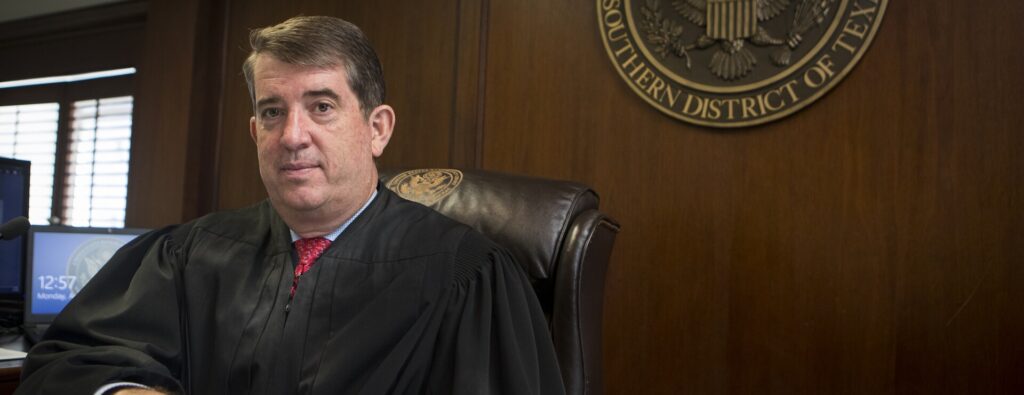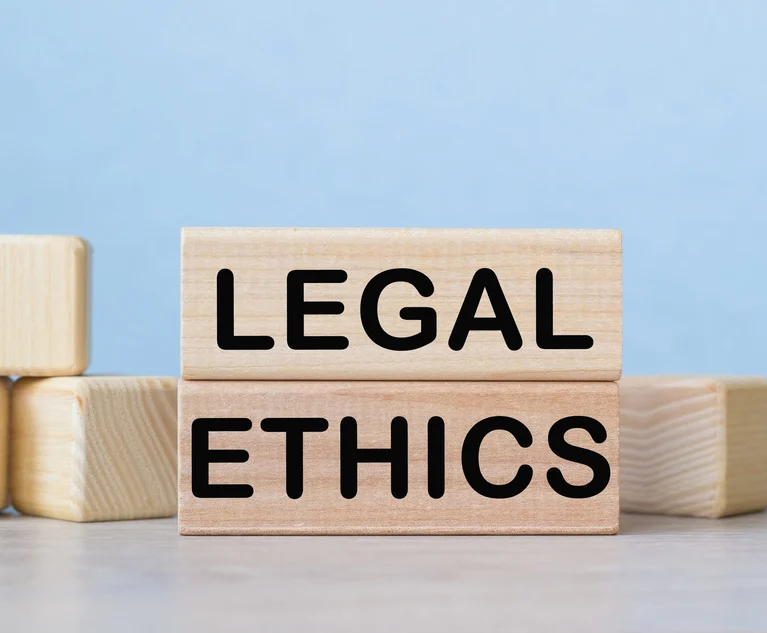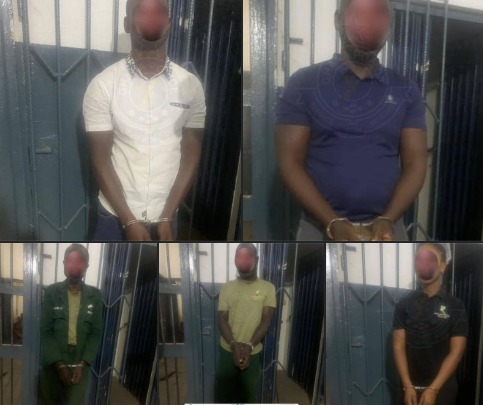A federal judge who ordered a defendant’s daughter handcuffed to warn her about the consequences of drug use has been reprimanded by the judicial council of the 9th U.S. Circuit Court of Appeals at San Francisco. (Image from Shutterstock)
A federal judge who ordered a defendant’s daughter handcuffed to warn her about the consequences of drug use has been reprimanded by the judicial council of the 9th U.S. Circuit Court of Appeals at San Francisco.
Senior U.S. District Judge Roger T. Benitez of the Southern District of California was reprimanded in a May 1 order.
The judicial council concluded that Benitez, an appointee of former President George W. Bush, used “misguided and inappropriate methods” in an attempted scared-straight approach that constituted judicial misconduct.
The incident happened during a February 2023 parole revocation hearing for Mario Puente, the girl’s father, who had been convicted on a drug distribution conspiracy charge.
Puente told Benitez that he wanted to leave San Diego to get a fresh start. Puente also said he was worried about his 13-year-old daughter hanging out with the wrong people. And he wanted to get her out of San Diego, so she wouldn’t follow the same path.
Benitez asked Puente’s daughter to approach.
“You got cuffs?” he asked a deputy U.S. marshal.
Benitez then ordered the deputy U.S. marshal to handcuff the teenager. Benitez told the marshal to place the teen in the jury box where her father was seated. The teen was crying while handcuffed, witnesses said.
After a short amount of time, Benitez ordered the cuffs to be removed. The exact time is unclear; witnesses estimated that the teen was handcuffed anywhere from a few seconds to four minutes.
Benitez asked the teen how she liked the handcuffs. She replied that she didn’t like it.
“Good,” Benitez said. “That was the message I was hoping to get to you. So your dad’s made some serious mistakes in his life, and look at where it’s landed him. And as a result of that, he has to spend time away from you. And if you’re not careful, young lady, you’ll wind up in cuffs, and you’ll find yourself right there where I put you a minute ago. …
“You’re an awfully cute young lady, and I have a feeling you have a wonderful life ahead of you. But from what I just heard about your dad—from your dad causes me to be very troubled.”
Later in the hearing, Benitez told the girl: “I hope the next time you’re tempted to use drugs, even weed, OK, even weed, you’ll remember what happened here today. I hope you remember this mean, old face. Look at it carefully. Remember that some day, those drugs may land you in a courtroom just like this. I don’t want that to happen to you, young lady.”
Benitez also told the girl that he wanted her dad to get over his addiction, to come home and to keep her out of trouble.
Benitez told a special investigating committee that he had hoped to change the behavior of the teen and potentially her father. He noted that no one in the courtroom objected to his actions. And he said he never raised his voice, never berated the teen, and never said anything to demean or shame her.
“Judge Benitez has, at every point, maintained that he acted only with the best intentions toward Mr. Puente’s daughter and her father,” the judicial council said. “But his good intentions do not excuse his conduct during the Puente hearing, which displayed misguided and inappropriate methods that exceeded the authority vested in him.”
The judicial council said two aspects of Benitez’s conduct were impermissible. He had no authority as a district judge to order the shackling of a hearing spectator who is not engaging in or threatening disorderly behavior. And by creating a spectacle of a minor child in the courtroom, he chilled the desire of friends and family to support loved ones at sentencing.
The judicial council found that Benitez violated several judicial ethics rules. He engaged in abusive or harassing behavior, failed to maintain high standards of conduct as a federal judge, failed to act in a manner that promotes public confidence in the integrity and impartiality of the judiciary, failed to treat the teen in a respectful and courteous fashion, and undermined the public’s trust and confidence of the judiciary.
The judicial council noted that Benitez chose not to be assigned new criminal cases when he took senior status in 2017. The judicial council said it “approves and confirms this arrangement” by limiting Benitez’s new cases to civil matters for three years. During that time, defendants in already-assigned criminal matters can seek recusal in hearings for violations of supervised release.
By Debra Cassens Weiss




